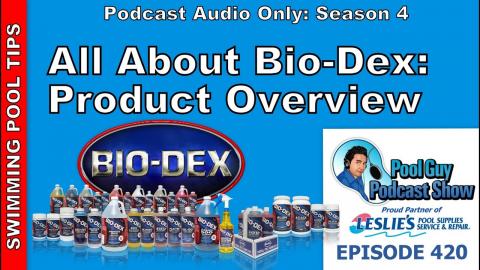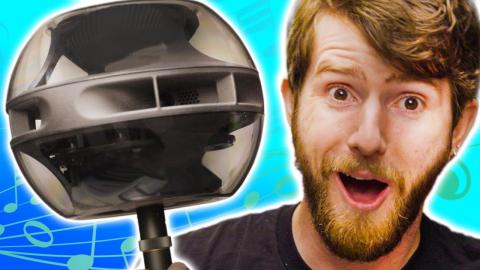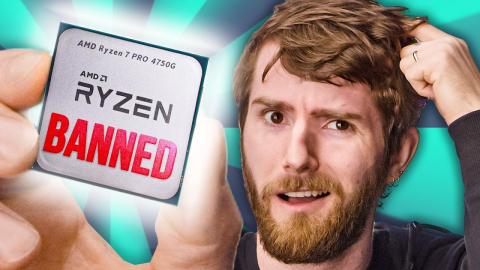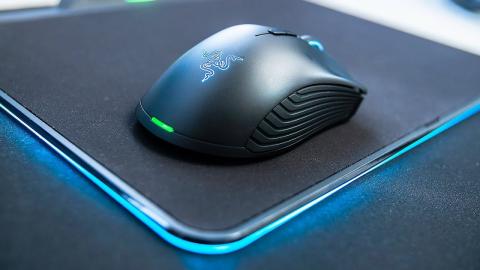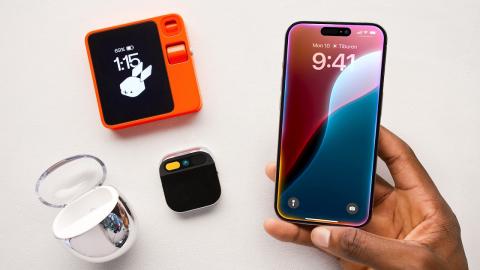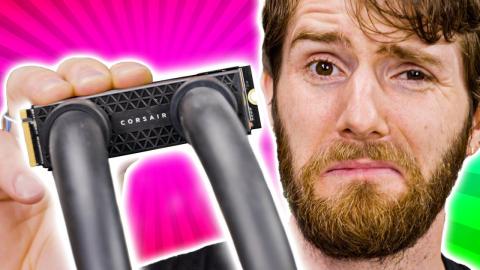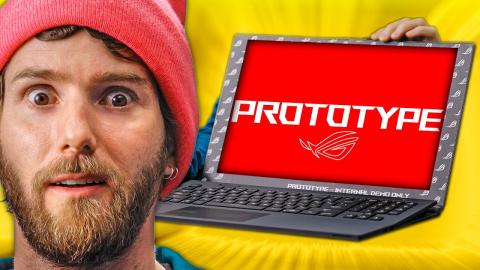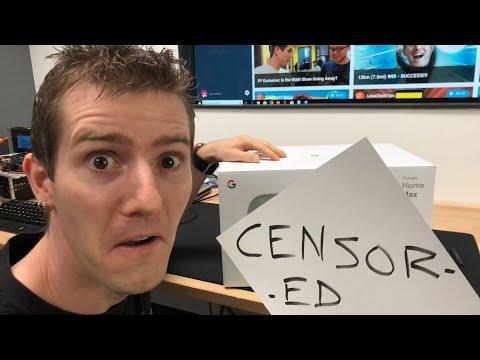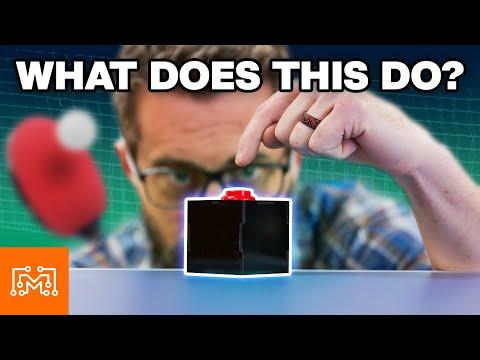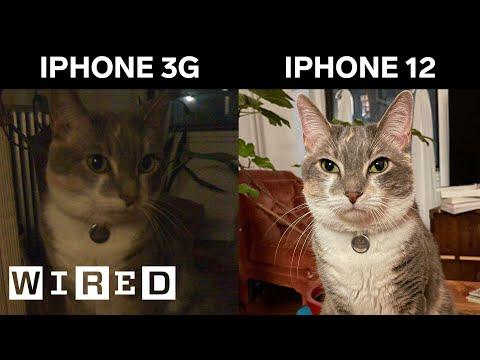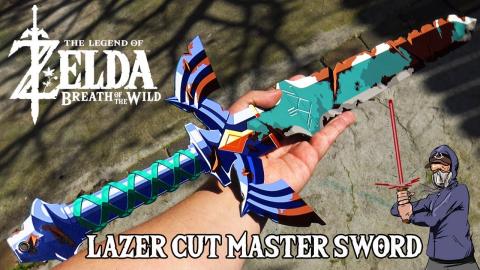Every Chlorine Product has a By-Product, Which Can You Live With?
Description
Liquid Chlorine (Sodium hypochlorite) – by-product is salt (Sodium)
17 ppm per 10,000 gallons of water with 1 gallon of liquid chlorine
Chapter marks:
00:00 Introduction
01:05 Non-Chlorine Types
02:30 Bob Lowry's Chlorine to CYA
04:11 Trichlor By-product
06:45 Dichlor By-product
08:24 Liquid Chlorine by-product
10:29 Cal Hypo by-product
12:37 SWG by-product
15:06 Chlorine Genie
16:16 Workarounds
18:30 Benefits of enhancers
Liquid Chlorine or Bleach is the tried and true standard chemical of choice for most pool service professionals. It is usually sold in 12.5% active chlorine per gallon with Bleach coming in at about half that strength at 6.5%. It will raise the pH slightly, but it does not contain any Stabilizer or Conditioner making it ideal for all pool types. This means that when you add a gallon of liquid chlorine and your Conditioner level (CYA) is 50 ppm it will stay at 50 ppm even if you add 20 gallons of liquid chlorine.
Pros:
Fastest acting of all chlorine types
Will not raise your CYA level
Safe for all pool types
Easy to use
Cons:
Breaks down by the Sun’s UV Rays so your pool needs a CYA level of 30-50 ppm
Short shelf life so rotate stock or buy fresh chlorine when needed
Half-life is about 90 days
Cal Hypo (Calcium hypochlorite) Calcium
8 ppm of calcium is added to 10,000 gallons of water per 1 lbs. of Cal Hypo
Cal Hypo is very popular and there are several reasons why it is widely used in the industry. It is easy to carry and comes in different strengths 60-75% active chlorine. Not an issue if you live in an area with soft water but I caution against the use in areas with hard water. It also has a high pH of around 12 so it will raise the pH in a pool if you use a significant amount each week. It can also make the pool cloudy if you pour a bag directly in.
Pros:
Strong and easy to use
Does not contain a Conditioner so it will not raise the pool’s CYA levels
Cal Hypo Tablets dissolve slowly over a week and don’t raise the pool’s CYA level
Safe for all pool surface types but use caution with a vinyl liner
Cons:
Raises Calcium Harness in a pool
Raises the pH in a pool
Clouds up the pool water if poured directly in
Dichlor (Dichloroisocyanuric acid) adds about 50% CYA to the pool water per weight of the dichlor added. Example: If you add 10 lbs of Dichlor to your pool you are also adding 5 lbs. of Cyunaric Acid to the water.
Dichlor is a very popular form of chlorine and the granular form makes it very easy to measure and use in a pool. It is pH neutral which means it will not raise or lower the pool pH in any significant way. It does contain Cyanuric Acid (CYA), about 50%-65% by weight. Over time this will increase the pool’s CYA levels. A little Dichlor goes a long way making this an ideal chemical to carry on your truck if you service pools.
Pros:
Easy to use and powerful
pH neutral
Safe for all surface types
Long the shelf life of 2-3 years
Cons:
Adds Conditioner to the pool
Expensive so not practical in most applications
Tri-Chlor or Trichloroisocyanuric Acid ( Trichloro-S-Triazinetrione) adds about 50% of Cyanuric Acid to the water by Trichlor tablet weight
The familiar 3” tablets that slowly dissolve in your pool, a very fine powder shock and a granular form. About 50% of the Tri-Chlor by weight is Conditioner. So, a 50 lbs. bucket of tablets is about 25 lbs. of CYA. If you overuse tablets your pool’s CYA level can go up rapidly. Trichlor tablets are usually 95% to 99% active chlorine. Tri-Chlor tablets have a very low pH of 2-3 so they will lower the pH in your pool. The tablets contain acid in the form of Cyanuric Acid so if one falls into the pool it is likely to stain the surface by burning it.
Tri-Chlor granular is very powerful stuff. It is the Tri-Chlor Tablet grounded up in granular form and is 99% active chlorine. Use with extreme caution as the Conditioner in the granular can stain the plaster. The CYA in the tablet is acid and if you let it pile up on the pool surface it will stain the plaster as if you dropped a 3” Tablet into the pool. Never add this to the skimmer and if you do use it for Black or Mustard algae make sure it is evenly dispersed on the pool surface. Not for use in Vinyl, Fiberglass, or color plaster pools.
Pros:
Very strong and slow dissolving in tablet form so it releases chlorine all week long
Easy to use
Cons:
Can stain the pool surface
Contains 50% CYA by weight
Expensive in today’s inflationary environment
Visit my Website: http://www.swimmingpoollearning.com/
eBook: https://www.swimmingpoollearning.com/swimming-pool-care-ebook
Shop at Leslie's: Leslie’s Pool Supplies has been do-it-yourselfers and pool trade professionals trusted partner since 1963, providing quality products and services to make pool care easy and solutions and expertise to do it right. http://lesliespool.com/?utm_medium=referral&utm_source=spll&utm_campaign=spll


